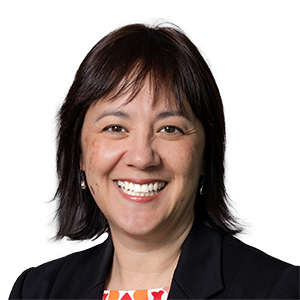The Supreme Court of Western Australia – Court of Appeal's decision in ASIC v Jones1 provides additional welcome clarification on the issue of insolvency practitioner independence in the context of pre-administration services. The decision is broadly consistent with the decision in Ten Network2, in which the Federal Court of Australia held that a conflict of interest can be mitigated but not cured by disclosure and consent. However, the decision in ASIC v Jones provides further clarity on the factors that a Court will consider when assessing independence.
Background
The voluntary administrators were appointed to two companies, GD Pork Pty Ltd and GD Meats Pty Ltd in October 2018 (Companies).
Prior to their appointment, one of the voluntary administrators (via the practitioner’s firm) provided advice to the Companies over a period of 3 months immediately before the Companies were placed into administration. The practitioner’s firm was paid a fee of circa $100,000 for that advice, before the commencement of the voluntary administration.
ASIC alleged that the voluntary administrators lacked independence because of a conflict of interest. It was alleged the conflict of interest arose from the fact that the fee paid for their pre-administration advice may be a voidable preference in a liquidation. ASIC also argued that the practitioners should have their remuneration reviewed and reduced because of the conflict of interest.
Decision at first instance
The Supreme Court of Western Australia dismissed ASIC's case at first instance. Justice Kenneth Martin found that there was no real or sensible possibility of conflict and no apprehended bias because the fee for their pre-administration advice was reasonable. Justice Martin also found that even if there had been a conflict of interest, it would not have been sufficient to warrant a review of the insolvency practitioners' remuneration. ASIC appealed.
Decision on appeal
The Court of Appeal found that the fee did give rise to a conflict of interest and a reasonable apprehension of bias. However, the Court of Appeal concluded that it should not exercise its discretion to review the insolvency practitioners’ remuneration because:
- the work which related to the investigation and reporting of unfair preferences represented only a small proportion of the fees charged for the administration;
- the acceptance of the appointment in circumstances of a conflict of interest was inadvertent;
- there was no suggestion that the insolvency practitioners were in fact deflected from the due performance of any aspect of their duties as administrators, nor was there any criticism of their analysis that the date of insolvency was the date of the administrators’ appointment;
- the opinion that the administrators ultimately formed was that liquidation was the only viable option and there was no basis to doubt the correctness of that opinion. Therefore the administrators’ opinion as to the future of the Companies was not, in fact, affected in any material way by the prospect that, if the Companies were wound up, the fee may need to be disgorged;
- there were considerable benefits and cost savings to the administration of the Companies in the insolvency practitioners being appointed administrators, given the information gained in providing the pre-administration services. Had they approached the Court before they accepted appointment as administrators, these considerations would likely have led the Court to direct that their appointment be accepted, despite the potential conflict of interest and apprehension of bias;
- the Companies’ creditors resolved to approve the remuneration after the insolvency practitioners had fully disclosed the relevant facts and ASIC’s concerns;
- the conduct of a review would require remittal of the case and involve further expense and delay, where the proceedings had already taken a substantial period of time and consumed considerable resources.
Accordingly, although some of the grounds of appeal were established, the Court of Appeal did not disturb the orders made by Kenneth Martin J and dismissed the appeal.
Commentary
The Court of Appeal has clarified that a conflict of interest will not necessarily disqualify an insolvency practitioner from acting, where the conflict of interest is inadvertent, no creditor raises a concern, and the evidence shows that the practitioner was not deflected from the due performance of any aspect of their duties as administrators.
Specifically, the Court of Appeal pointed to the fact that the Companies were placed into liquidation instead of entering into a deed of company arrangement (i.e. if a deed of company arrangement had been recommended by the voluntary administrators and approved by the creditors, this would have meant that their fee would not be at risk of disgorgement as an unfair preference). Liquidation was the only option, so there was ‘no doubt’ that the voluntary administrators’ recommendation that the Companies be placed into liquidation was ‘unaffected’ by their interest in avoiding a possible preference claim.
The Court of Appeal also clarified that there must be sufficient circumstances to warrant a review of an insolvency practitioner's remuneration.
The decision does not deviate from prior judgments on the issue of insolvency practitioner independence. The decision is consistent with the decision in Ten Network, where the Court held that a conflict of interest can be mitigated by disclosure and consent and seeking the assistance of the Court.
In Ten Network, relief was sought by the administrators in respect of their (and their firm’s) substantial pre-administration work. The Court accepted this was to prepare an administration contingency plan in case the formal restructuring negotiations being conducted by the Ten Group (and not the insolvency practitioners’ firm), were unsuccessful. The insolvency practitioner was not retained, nor did he act as, a professional adviser to the Ten Group, its board, management or any other director. In Ten Network, the practitioner’s firm was retained by the Ten Group’s solicitors and not by the Ten Group directly. This is to be contrasted with the Companies’ direct engagement of the voluntary administrators’ firm, and one of the eventual administrators, in ASIC v Jones.
The decision in ASIC v Jones provides further clarity on the factors that a Court will consider when assessing independence, including:
- the steps taken by the practitioners to avoid the conflict. Once ASIC raised its concerns, the practitioners disclosed the conflict to the Companies and obtained approval of their remuneration from creditors following that disclosure;
- the public interest. The Court considered the public interest in ensuring that insolvency practitioners are independent and impartial. The Court found that the public interest was not outweighed by the conflict of interest in this case. Further, a review of the practitioners’ remuneration would have added delay and cost to the Companies’ administrations;
- the pre-administration work itself (i.e. the working knowledge of the Companies’ business and financial position) did not preclude the practitioners from being appointed as voluntary administrators. If the practitioners had approached the Court for directions before their appointment, the Court would likely have directed that the appointment be accepted, despite the potential conflict of interest arising from payment of the fee3, with a special purpose administrator being appointed to deal with the fee issue (and other potential recoveries).
Lessons for insolvency practitioners
Some key lessons for insolvency practitioners include:
- insolvency practitioners should continue to be alert and proactive about identifying potential conflicts of interest;
- now that there has been some judicial guidance, including at appellate level, a Court may be less inclined in the future to find that a conflict of this nature is inadvertent, and practitioners in this position should recognise the issue and seriously consider seeking judicial directions;
- the scope of the pre-appointment advice remains critical. It cannot be used as a method to achieve a pre-pack;
- it is clear that ASIC is seeking clarity about the law in relation to this critical issue and will continue to monitor independence;
- practitioners should keep a sufficient record of all pre-administration tasks performed, so that evidence can be adduced to address any conflict of interest allegation;
- where pre-administration advice is provided, carefully document the scope of the engagement (will the engagement be by the company or, as in Ten Network, the company’s lawyers) and ideally, be paid up front so that unfair preference risk is avoided;
- it does not automatically follow that a practitioner will be precluded from accepting a formal appointment after having been engaged to develop a restructuring plan. The Court has a variety of options, including ordering the appointment of a special purpose administrator who can separately perform the function(s) in respect of which there is an apprehension of bias on the part of the administrator. Further, there are a number of safeguards that may be put into place, including:
- making it clear to the board of directors that the practitioner may become the administrator if other measures to restructure the company do not succeed;
- ensuring that the retainer is clearly defined;
- ensure the DIRRI is correct and properly discloses all potential conflicts.














